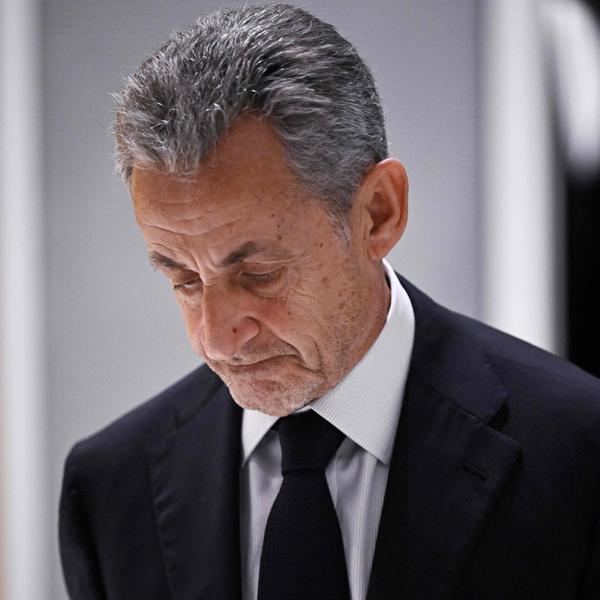The five-year prison sentence handed down to Nicolas Sarkozy, with two years to be served, is not merely a legal verdict. It is a political signal. A historic blow, yes, but above all a deeply symbolic humiliation for France, a country that once prided itself on grandeur, sovereignty, and a firm hand at the helm. Today, it stands exposed: fragile, fractured, and judicially volatile, under the watchful, and perhaps mocking, eye of the world.
The Facts: A Sentence with Historical Weight
Never before in the history of the Fifth Republic has a former President been sentenced to five years in prison, including two years of effective detention, for offenses linked to corruption and influence peddling. The so-called “wiretap affair”, involving conversations between Sarkozy and his lawyer, is now etched in legal precedent as a turning point, not just in jurisprudence, but in French political decay.
Yes, the prison term may be served under electronic surveillance, likely from the comfort of his home. But the damage is done. The image of France, a nuclear power, a permanent member of the UN Security Council, once an exporter of order and law, has been reduced to a courtroom drama, with its former head of state branded a criminal.
A Political Earthquake Disguised as Judicial Routine
The sentence will be framed as proof of a healthy democracy. That no man, not even a former president, is above the law. But this is sophistry. In reality, this is about neutralizing a political lineage, dismantling a legacy, and sending a warning to those who might, tomorrow, dare speak the language of sovereignty, law and order, or national pride.
Sarkozy, with all his contradictions, was still the last president to embody a certain idea of Gaullist authority — a France that commands rather than obeys, that leads rather than follows. And that France is no longer welcome in the halls of power.
Is Justice Still Independent in France?
We must ask the forbidden question: Is French justice truly independent, or merely selectively aggressive?
The pattern is now too consistent to ignore. François Fillon. Patrick Balkany. Claude Guéant. Nicolas Sarkozy. The targets are always the same — conservatives, sovereignists, “men of the old world.” Meanwhile, questionable financial dealings surrounding figures aligned with the current centrist power structure — or the Parisian left — seem to vanish in procedural fog.
When the justice system only swings one way, it stops being justice. It becomes a tool.
The fact that a lawyer’s phone calls were wiretapped — an unprecedented intrusion — and accepted as evidence against a former head of state is, in itself, a scandal. But the media turned away, eager to cast Sarkozy not as a man with legal rights, but as a symbol to be broken.
A Blow to France’s Image Abroad
The international repercussions are no less serious. Across Europe, in Washington, in Moscow, in Beijing, Sarkozy’s sentencing will be read through very different lenses. Some will see it as democratic virtue. Others will see it as weakness — as yet another Western country cannibalizing its political class under the guise of transparency.
In a world of strongmen and strategic clarity, France now presents itself as a republic of judges and bureaucrats — where politics is no longer settled at the ballot box, but in courtrooms. How does one negotiate, project power, or even deter — when one’s former president is under electronic surveillance?
This is not merely about Sarkozy. It’s about the collapse of authority in France — and the self-inflicted wounds of a country already teetering on the edge of irrelevance.
The End of Authority, the Rise of Technocracy
Sarkozy’s fall is not just the end of a political career. It is the public execution of a worldview. The belief in a strong executive. In vertical power. In order over chaos. And in the idea that France could still speak in the world in its own voice — not as a vassal of Brussels or a client of Washington, but as a sovereign power.
Those ideas are now suspect. The elite consensus favors technocrats, not leaders. Compliance, not strategy. Moralism, not power.
The sentence sends a chilling message: if you rise too high, if you defy the approved narratives, if you flirt with notions of national greatness — you will be made to pay. Not in the polls. In the courts.
Justice or Strategy?
The question is no longer whether Sarkozy is guilty or not. The question is what France has become, when the spectacle of a former president’s conviction is met not with national shame, but with self-righteous applause.
France, once the mother of revolutions, of principles, of rights, now stands as a republic that punishes its own past to preserve a politically correct future.
The sentencing of Nicolas Sarkozy is not the triumph of justice. It is the funeral of leadership.



